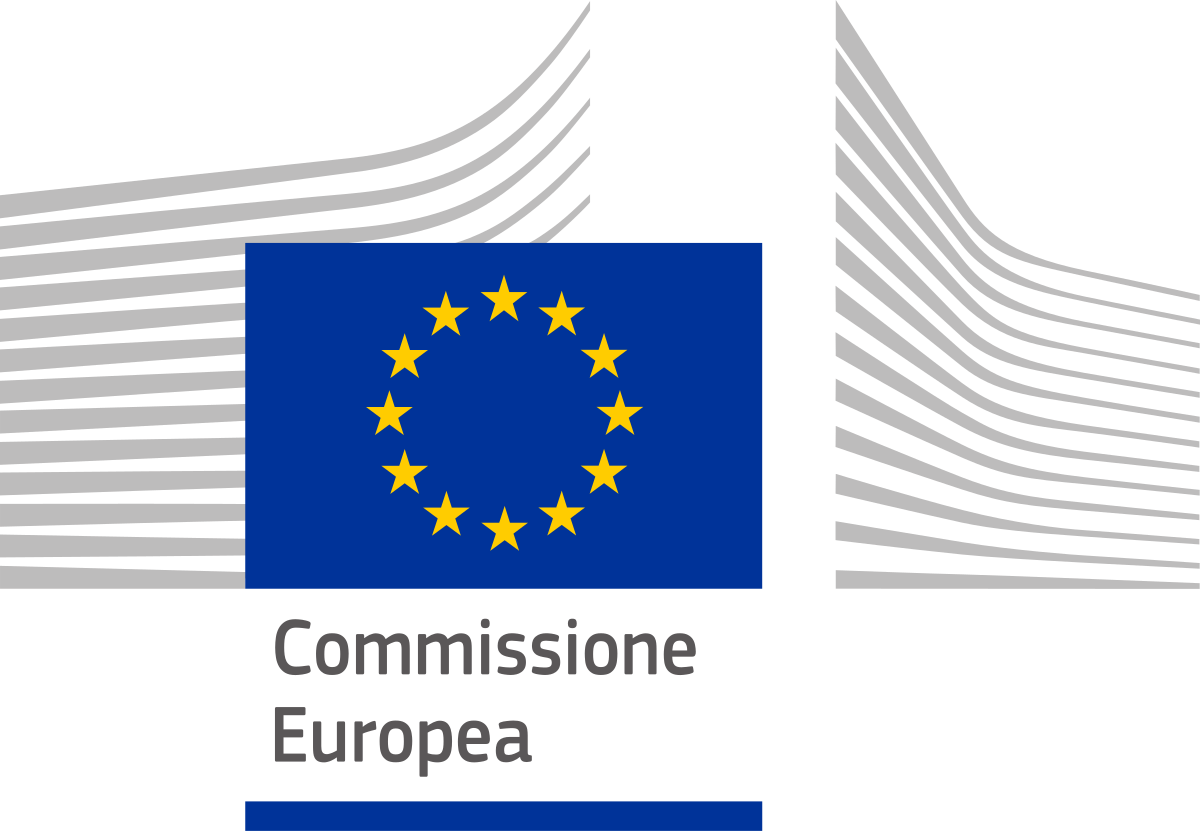Raising Awareness and Staff MObility on violent RADicalisation in Prison and Probation Services
RASMORAD P&P – REASONS FOR THE PROJECT
A well-functioning prison system is key to counter prison radicalisation. Nevertheless, the identification of good practices that are meant to provide prison personnel with tools, information and resources necessary to identify signs of radicalisation and develop an appropriate response are of utmost importance when tackling the issue. Those good practices pertain to administration and management of prison facilities, staff training, risk assessment, classification procedures, accountability and responsibility, intelligence and communication, support religious services,rehabilitation/derad/disengagement programmes and community/stakeholders involvement.
Paramount researches on the phenomenon in prison environments, in particular those started at an early stage, have focused on the psychological processes known as “cognitive opening” and “frame alignment”, which are on the way once the offender enters prison, after being convicted to long or short sentences, even if his crime is not related to terrorism offences. The offender is open (cognitive opening) to new ideas, different moral settings (rules and regulations inside prison) and communities (prison(er) community and working environment), and may become vulnerable to views, sometimes radical and extremist, particularly from someone close to him socially, leading to radicalisation.
However, Europe is very sceptical in considering the prison environment as a “university of terror”, and is rather in favour of a far more inclusive, impartial and fairer one that represents and serves the whole community.
The Partners:
- French Ministry of Justice France (France)
- Administratia Nationala a Penitenciarelor (Romania)
- Dipartimento per la Giustizia Minorile e di Comunità (Italy);
- Unione delle Comunità Islamiche d’Italia (Italy);
- Universitatea De Vest Din Timisoara (Romania)
- Istituto Psicoanalitico per le Ricerche Sociali (Italy);
- Istituto Superiore Internazionale di Scienze Criminali (ISISC) (Italy);
- Exit Società Coorerativa Sociale Onlus (Italy);
- Direção-Geral de Reinserção e Serviços Prisionais (Portugal);
- General Directorate Execution of Sentences (Bulgaria)
With the collaboration of the associated partners:
- Amministrazione Penitenziaria – Belgium
- Amministrazione Penitenziaria – Cyprus
The RASMORAD P&P project, within the scope of its first action, is aiming at bringing practitioners together for sharing information and raise awarenessso to sketch how policy makers have so far reacted to the phenomenon and survey on a variety of management provisions on violent radicalisation in prison and probation services, and namely :
- on national prison/probation environments andtheir managementwith reference to the issue,
- on factorsthat may have interacted withor influenced the radicalisation process and actions adopted to CVE and/or minimize the risk (classification of inmates, dynamic security, intelligence relationships and communication, overcrowdingreduction, staff-prisoner trustworthy relations, support from the community and family and so on).
It is therefore necessary to
- review some theoretical studies and researches based on radicalization in prison/probation services;
- understand how prison settings and detention experiences have been considered as causal factors in choosing radicalisation pathways;
- know which are the tools at the frontliners’ disposal (list of factors/indicators) to help them inidentifying the risk and the professional skills/competences prison/probation staff should master to figure out the causes of the process and, eventually, prevent radicalisation in prison.
The first objective of the project’s second action is the development of a common risk assessment methodology to detect violent radicalisation in prison. The second objective is the implementation of a common operational tool for the risk identification, evaluation/analysis and management. It is of utmost importance to provide the community of practitioners (security staff, treatment staff, managers, physicians, psychologists, teachers, chaplains, instructors and so on) with the right competences to translate the early signs of radicalisation, and counter the intensification of extremist beliefs and the development of group solidarity within a hostile environment. Mutual support and multi-sector cooperation are fundamental to CVE to surround the inmate and to support the individual at risk in overriding inner conflicts and let him acting in synergy/symbiosis with the environment/setting.
The third project’s action will work on exit strategies and the implementation of rehabilitation/disengagementprogrammes in prison. The project actions will take into considerationsuggestions coming from the theory of desistance, so much fostered by the Radicalisation Awareness Network and CoE, and support from the Council of Europe and European Commission communication.
Project’s general objectives:
To promote and enhance judiciary cooperation in criminal and penitentiary matters to fight against radicalisation leading to violent extremism and to counter terrorism. To contribute to the protection of Europe and its citizens from increasing extreme terrorism threats. To foster a dialogue between practitioners, policy makers and academics in an inclusive way.
Project priorities and specific objectives:
Prevention of radicalisation in prisons so to:
- raise awareness on radicalisation processes and its causes (reviewing literature and researches on paramount cases of radicalisation in prison);
- adopt preventative measures on violent radicalisation, through an in-depth analysis and discussion of prison settings and factors that could fast track the process and have influence on the action propensity (to terrorism);
- share information on how prison regimes are organised and which strategies are implemented to deal with terrorist offenders. Exchange of best practices transferable to national prison administrations;
- compare partners open prison regimes (dynamic security), if implemented, and their impact on the community of prisoners in terms of prevention of proselytism among inmates (pastoral support and interaction with people of other faiths for the development ofa critical thinking):
- foster a safer and secure prison environment, based on tolerance, diversity, mutual respect in full compliance with human rights and the rule of law.
Development of a risk assessment methodology and tool for
- building/strengthening expertise in the risk identification, assessment/analysis and management of frontliners and managers in prison and probation services, of judges and stakeholders. They should take a long-term perspective and be aware that vulnerable individuals need to be constantly monitored and/or supervised in the community. Therefore,the exchange of information between practitioners is of paramount importance (collecting evidences/facts/info of what happened before imprisonment, tie them up with elements from the individual’s experiencein prison and, finally, assess the risk for the community before/after release). Great evidence will be given to ICCT deliverables.
- enhancing cooperation among actors working at risk assessment in prison and probation services, fostering information and intelligence sharing and guaranteeing cross-domain interoperability;
- best practices and expertise exchange in national and international scenarios.
Boosting measures alternative to imprisonmentby
- enhancing prison and probation staff professional competences to provide and implement exit strategiesbefore release. They are targeting inmates convicted for acts of terrorism;
- empowering cooperation with the judiciary system, law enforcement agencies (community policing and inter-agency cooperation) and stakeholders to implement community sanctions.
Activities:
- Steering Committee project implementation and management transnational meetings;
- Transnational workshopson trending topics/challenges and study visits to prison facilities to take place in the beneficiaries/applicant countries (target group: 30 participants including front-line workers, managers and Steering Committee members from project beneficiaries and applicant).They will participate in this activity aiming at mutual identifying and exchanging best practices in detention, possibly transferable to other Countries, as well as at analysing the role of probation in fighting radicalisation leading and at starting exit strategies for imprisoned terrorists;
- Community of practitioners national meetings to support the launching of national networks on radicalisation and social inclusion. They will contribute to the dissemination of the project activities and outcomes and the private/public cooperation upgrade;
- Scouting methodologies, tools and practices adopted in identifying, assessing and managing risk of violent radicalisation in prison and probation settings;
- Sketching a common operational tool for CVE in prison/probation transferable to national administrations/services. Said tool will be delivered to practitioners through 5 webinars;
- Setting up a website for the project’s outputs and outcomes visibility and the dissemination of the project activities to private and public users;
- Working out a model of cooperation memorandum among various professional bodies interacting with the offenders on radicalization issues;
- National meetings for the implementation of information/dissemination activities in each project partner’s country;
- Cascading activities to disseminate and inform community of practitioners and stakeholders at national level aiming at:
- Sharing project outcomes among partners’ targeted public on prison/probation responses to violent radicalisation leading to terrorism (i.e. dynamic security, equipping staff with tools and training in risk assessment, implementing exit strategies and so on);
- Sharing risk identification, assessment and management relevant to the project’s topic presented by the project’s partner countries;
- Gathering consent and involving participants in the implementation of a national radicalisation community of practitioners/network and an eventual helpline, active in the prevention of radicalisation leading to violent extremism, at the community’s disposal;
- Starting national training schemes for practitioners based on a multi-agency approach and the project outcomes.
This activity is considering the project sustainability for the forthcoming years after the project ending. Activities under item 9 are co-financed by each project partner;
Expectedoutcomes/outputs:
- Improvement of detention conditions in open prison regimes from a preventative perspective on violent radicalization leading to extremism and terrorist attacks and in high security regimes for those who are convicted for terrorist crimes.
- Enhancement of violent-radicalisation-in-prison knowledge and implementation of a pilot common risk assessment tool to help front line workers in carrying out targeted interventions on vulnerable individuals at their arrival in prison, during detention time and before release or supervision in community sanctions;
- Improvement of multi-agency approaches and cross sector collaborations in tackling the issue of violent radicalisation in prison/probation settings and to support in detecting and assessment activities;
- Supporting actions for policy makers in the prevention of violent radicalisation leading to terrorism in prison/probation key environments (development of exit programmes and their funding), the revision of nationalstrategies, the reviewing of a policy area or the development of key project plans (national radicalisation networks, helplines, for instance). Support from RAN Centre of Excellence is envisaged.
Beneficiaries/partnership:
Penitentiary services of seven EU Member States, as both co-beneficiaries and associates, judiciary, local bodies and communities, academies, research centres, local bodies and communities, private associations, NGOs, religious communities and associations, law enforcement agencies.
In particular, the following people will be involved:
- about 200 managers of penitentiary and probation services
- about 400 front-line practitioners of penitentiary and probation services
- about 560 judges and leaders of local and religious communities and associations
- about 410 practitioners who will be involved in the webinars
Duration:
24 months from the date appearing in the signed agreement with the EU Commission.
Meeting Agenda:
- Kick-off meeting Rome, 22-24 February 2017. International experts have been invited to lecture on violent radicalisation in P&P settings. Practitioners from the beneficiaries’ and associate partners’ countries are attending the meeting at the outstanding Prison and Probation Training Academy in Italy (per sapene di piu se vogliamo metterlo
- I Meeting of the Project’s Steering Committee. Sofia (Bulgaria), 19- 21 April 2017. The main subject of the Meeting concerned the in-progress QUESTIONNAIRE, which is being defined by the scientific Partners under co-ordination of the Syracuse ISISC Institute (Italy), as decided in the previous Kick-off meeting in Rome.
- II Steering Committee & Workshop Meeting Rome, 3rd – 7th July, 2017. The Steering Committee will follow up the analysis of the Questionnaires filled by the Partners in the last months. During the Workshop, participants will share experience and good practices in prevention of radicalisation and security management in different prison settings (medium and high security level regimes).
- Workshop on “Risk Assessment” Brussels, 10th – 13th September, 2017. Different experiences and approaches, in using tools and methods of Risk Assessment of violent extremism, will be described and compared by the Partners’ delegates during the Workshop. In fact, one Rasmorad target is to find out a Risk Assessment methodology, that can be shared in all the partners’ P&P systems.
- 3rd Steering Committee & Workshop Meeting, Bucharest, 11th – 15th December. Exist strategies, probation and DE radicalization
- Workshop on “Risk Assessment” Sofia (Bulgaria), 17 – 19 January, 2018.
- P & P WORKSHOP: “Staff Training”, Agen (France), 13 – 14 February, 2018.
- Final Conference, Rome, Italy – 18 december 2018, Ministry of Justice – Department of Penitenciary Administration (Criminology Museum)
WEBINARS
A Common Strategy for Violent Extremism Risk Assessment in Prison and on Probation
The identification and management of Islamic violent extremists within the criminal justice system represents a growing concern in numerous EU Member States. This webinar focuses on the common risk assessment strategy developed within the RASMORAD project, providing an overview of the main issues recognized within the international literature and guidance followed by an in-depth look at the strategy’s components in order to gain a comprehensive understanding of the multiple aspects associated with the effective utilization of risk assessment and screening tools.
- W1: 22 november 2018
- W2: 22 november 2018
- W3: 29 november 2018
- W4: 29 November 2018
- Public Webinar: The webinar will be held on December 13th at 10:30 am (1 hour) in English. While open to all, significant focus will be placed on increasing awareness among the community-based providers (e.g., mental health, education, social services, NGOs, religious leaders). Interested individuals should register at https://meeting.zoho.eu/register?sessionId=9440143601 – Abstract for the public version of the common strategy webinar
Official Project Page:










